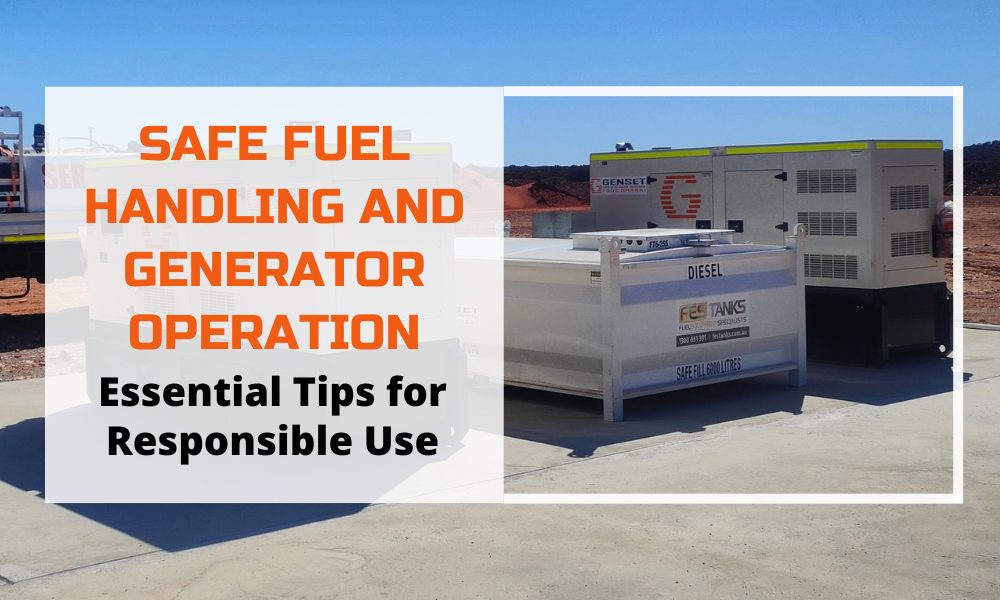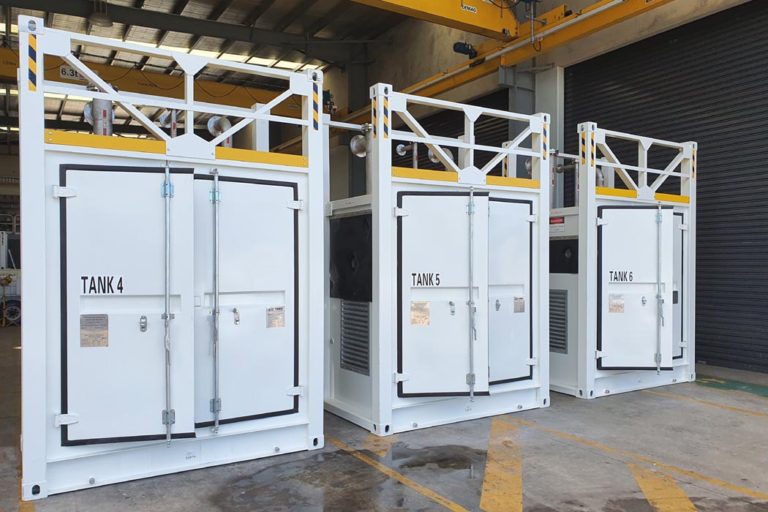Fuel is an essential resource for powering generators in various applications, from construction sites to emergency backup power for businesses. However, handling fuel and operating generators come with inherent risks. Implementing fuel handling safety procedures is crucial to ensure safety and efficiency in fuel usage.
At GHASA, we are committed to promoting safe practices in fuel management. In this article, we will explore essential tips for safe fuel handling and generator operation, focusing on fuel safety and storage, fuel storage safety, and best practices for fuel handling.
Understanding Fuel Safety
Before exploring specific procedures, it’s crucial to grasp the fundamentals of fuel safety. Fuel is flammable and can pose serious hazards if not managed correctly. Whether you’re dealing with diesel, petrol, or biofuels, adhering to strict fuel handling safety procedures is vital. Awareness of the potential risks and knowledge of how to mitigate them can prevent accidents and protect people and property.
Key Components of Fuel Handling Safety Procedures
Implementing robust fuel handling safety procedures is essential for minimising risks and ensuring the safe operation of generators. Understanding the key components of these procedures can significantly enhance safety in any environment where fuel is used.
Proper Training and Education: Ensuring that all personnel involved in fuel handling and generator operation are adequately trained is the first step toward maintaining safety. Training should cover the types of fuel being used, their properties, and the hazards associated with each. Regular refresher courses can keep everyone updated on best practices and new safety protocols.
Personal Protective Equipment (PPE): Always wear appropriate PPE when handling fuel. This includes gloves, goggles, and flame-resistant clothing to protect against spills and accidental ignition. PPE should be readily available, and its use should be enforced.
Safety Data Sheets (SDS): Keep Safety Data Sheets for all fuels used on-site. SDS provide crucial information regarding the chemical properties, hazards, and recommended safety measures for handling the specific fuels. Ensure that all employees have access to these documents and understand how to use them.
By focusing on proper training and education, the use of personal protective equipment, and maintaining accessible Safety Data Sheets, organisations can create a comprehensive fuel handling safety programme that safeguards personnel and promotes efficient generator operation.
Fuel Safety and Storage
When it comes to fuel safety and storage, several factors must be considered to ensure a safe environment. Improper storage can lead to leaks, spills, and even catastrophic accidents. Here are some key practices to follow:
1. Choose the Right Storage Containers
Use approved containers for storing fuel. Ensure that they are designed specifically for the type of fuel you are storing. These containers should be made of materials resistant to corrosion and designed to prevent leaks and spills.
2. Store Fuel in Designated Areas
Fuel should be stored in designated areas that are well-ventilated, away from ignition sources, and compliant with local regulations. Establish a designated storage location, clearly marked and equipped with necessary safety equipment, such as fire extinguishers.
3. Monitor Fuel Storage Conditions
Regularly inspect fuel storage areas for signs of leaks or damage to containers. This includes checking for corrosion, rust, or physical damage that may compromise the integrity of the storage. Maintaining a clean and organised storage area reduces the risk of accidents and facilitates quick response in emergencies.
4. Implement Spill Prevention Measures
Spill prevention is a critical aspect of fuel storage safety. Install secondary containment systems, such as spill trays or berms, to catch any leaks or spills. Conduct regular drills to ensure everyone knows how to respond in the event of a spill, including how to use absorbent materials and where to find spill kits.
5. Secure Storage Areas
Restrict access to fuel storage areas to authorised personnel only. This minimises the risk of tampering or accidental spills caused by unauthorised individuals. Ensure that proper signage is displayed to warn against entry.
Fuel Handling Tips
When it comes to fuel handling, adhering to best practices is crucial for safety and efficiency. Here are essential tips to consider:
-
Tip 1: Follow Proper Refuelling Procedures
When refuelling generators, always adhere to manufacturer guidelines and safety procedures. This includes:
- Turning off the generator before refuelling.
- Allowing the engine to cool down to prevent ignition of fumes.
- Using a funnel or nozzle to minimise spillage and splashing.
Tip 2: Avoid Fuelling in Enclosed Spaces
Never refuel generators or any equipment in enclosed spaces where vapours can accumulate. Always ensure proper ventilation to disperse fuel vapours, which can be flammable and harmful if inhaled.
Tip 3: Use Grounding Techniques
Static electricity can ignite fuel vapours. Grounding techniques should be employed when transferring fuel to prevent static discharge. This includes connecting a grounding wire from the fuel container to a grounded surface before pouring.
Tip 4: Inspect Fuelling Equipment Regularly
Regularly inspect fuelling equipment, such as hoses, nozzles, and pumps, for wear and damage. Replace any damaged equipment immediately to avoid leaks and ensure safe fuelling operations.
Tip 5: Implement a Fuel Inventory Management System
Keeping track of fuel usage helps manage supply levels and reduces the risk of running out during critical operations. Implementing a fuel inventory management system ensures accountability and enhances overall safety.
Generator Operation Safety
In addition to fuel handling, operating generators safely is vital. Here are key considerations:
-
Familiarise Yourself with the Equipment
Ensure that all operators are familiar with the generator’s operation manual. Understanding the generator’s controls, emergency shut-off features, and maintenance requirements is essential for safe operation.
-
Maintain Clearances and Ventilation
When operating generators, maintain adequate clearances around the unit to prevent overheating and allow for proper ventilation. Avoid placing the generator in enclosed spaces or near combustible materials.
-
Regular Maintenance
Routine maintenance is crucial for safe generator operation. Regularly check oil levels, air filters, and battery connections to ensure optimal performance. Schedule professional inspections with the team at GHASA to address any potential issues before they become hazardous.
-
Emergency Preparedness
Develop and communicate an emergency response plan for generator operation. This should include protocols for dealing with fuel spills, generator failures, and power outages. Ensure that all employees are aware of the emergency procedures and have access to necessary equipment, such as fire extinguishers and first aid kits.
Ensuring Safe Fuel Handling and Generator Operation with GHASA
Safe fuel handling and generator operation are vital for ensuring a secure working environment. By implementing fuel handling safety procedures, prioritising fuel safety and storage, and following best practices for fuel handling, businesses can significantly reduce the risks associated with fuel and generator use.
At GHASA, we are committed to promoting safety in fuel handling and generator operation. For more information on our gensets maintenance services in Perth, WA, visit our website or contact us on (08) 9359 1988. By adhering to these guidelines, we can all contribute to a safer and more responsible approach to fuel management.



